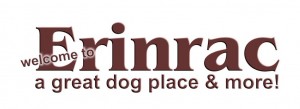Anaesthetic shock has been reported in the Clumber, here is some information for you.
to Dr Kathryn Brock BVSc DipVetAnaes
University of Melbourne
Dear Dr Brock
An article prepared by you for the Shetland Sheepdog Club of Victoria about breed reaction to general anaesthesology has been brought to my attention. You mentioned a number of breeds had been reported as remaining heavily seated after thiobarbitone administration and that these breeds were light bodied perhaps even lanky, I think the breeds named included Collie (Rough and Smooth), Shelties, and Irish Setters.
I have been concerned for a number of years about thiobarbitone anaesthesology in my Clumber Spaniels – by no means a light weight or lanky breed. Two bitches I have had spayed (and HD X-rayed) for pet homes after raising a itter each and a third bitch had a Caesarean. ALL three were very slow to recover from the anesthetic and all three exhibited signs of severe stiffness – perhaps acute bruising. I have very recently heard of another Clumber bitch who required a Caesarean and she too has displayed unduly long recovery time from the anaesthetic. This last named bitch is not from my bloodlines and is actually a Tasmanian resident.
In the UK there is very little published in our breed mag. However, I do recall one owner having problems with one preparation but then with the same dog no problems with a second anaesthetic – different brand name but the same drug!
In the US their one time top breeder, the late Mrs Bets Young, was a great advocate of morphine or perhaps it was a derivative, for “C-sections”.
In any case, if you’d like more information I wold be happy to supply the names of the vets, the name of the Tasmanian owner, and also hunt out the articles from the UK and the USA
Yours Sincerely
Miss JE Irving 11-4-94
no reply received as at 26-1-2004 14-10-2012!
My thoughts
I have a suspicion that Clumbers are over-anesthetized, based on their weight, but so much of the ‘body’ weight’ is in the bone which doesn’t respond to the anesthetic agents.
no barbituate induction (Clumbers are easy to handle anyway, so they hardly ever resent the mask) – although I have heard ‘good’ results with ******can’t find the info at the moment****; and Jurox’s Saffn (alphaxalone 9mg/ml alphadolone acetate 3mg/ml has been used with ‘good’ effect on one or two of my Clumbers, mind you it is not recommended for dogs) for induction
mask induction with a ‘modern’ gas
and maintain at low levels of gas (for instance if a level of 2.0 (whatever units) are ‘normally’ used, the vet will probably find 1.0 is more than sufficient for a Clumber
also, in more recent times there is the option of the anaesthetic used in hospitals for elderly folk and geriatics, some vets carry it, but of course it is more expensive
ACP (acepromazine) can also produced deeper sedation in Clumbers than dose rates indicate
I have to say as I am transferring this article to a new server, that the recent experiences with the modern gaseous anaesthetics have been virtually incident free, I do urge you to pay for the extra fluids to really help your Clumber to pull out from the anaesthetic [14-10-2012]
Here is a general email newsletter article – can’t say I particularly agree with the negative/positive, I’d be more inclined to think biochemical damage, but still, do read it!
